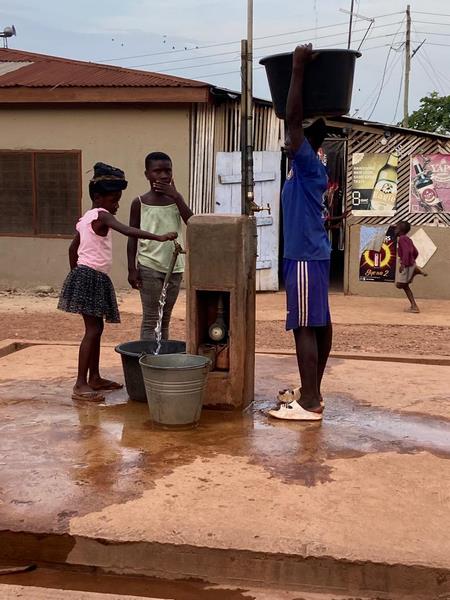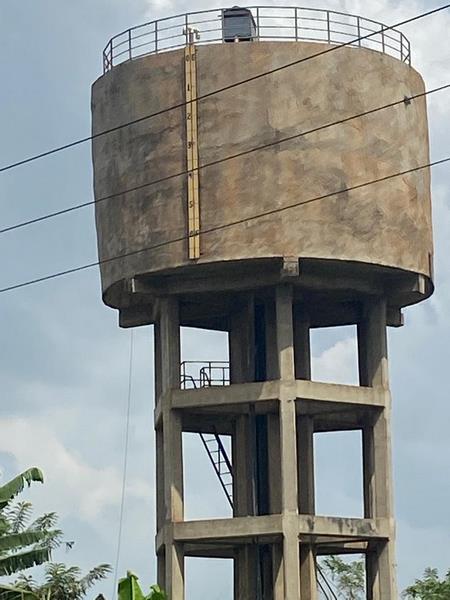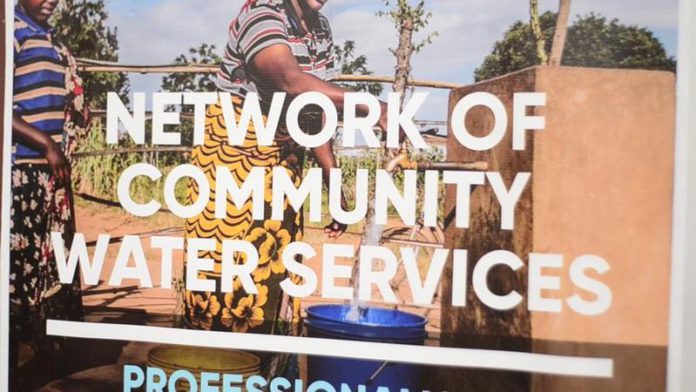Network of Community Water Services (NETCOWAS), has criticised the abysmal management of water utilities in small towns by government institutions.
Director of Operations for NETCOWAS, Fred Asafu-Adjaye explained some strategies to mitigate the challenges.
“The group will collaborate with Centre for Water, Sanitation and Hygiene to prepare specific project proposals and seek funding including impact funds for implementation of key sustainability improvement interventions. We will work with Banks to provide easy access to affordable commercial and blended finance for community-managed piped water systems. There will be strong advocacy for increased responsibility of road contractors to cooperate with managers of community piped water services to prevent the destruction of water transmission and distribution lines during town road construction works,” he said.
Mr. Asafu-Adjaye disagreed with the notion that communities cannot manage their water systems.

“The National Community Water Service Provider delivered 1022 piped water systems and 28,659 boreholes fitted with hand pumps in the 20 years preceding the June 2017 reforms of Community Water Service Agency. With this achievement on the back of community management, how can anyone say the community management model has failed?” he said.
Executive Secretary of NETCOWAS, Gifty Rhoda Afful opined that, revenues accrued from water management systems could be used to fund other developmental projects in communities.
“Some communities have their water operating without prepaid meters even those who have them are confronted with issues. With the establishment of this association, we will be able to provide meters so the communities can generate revenues and help their communities. The profits from this community Water can help solve societal problems like payment of fees for some students in the community,” she held.
Vice President of NETCOWAS, Morsohemaa Nana Acheampomaa Anima Kotroka II, entreated communities with piped water systems to become members of the association for long-term sustainability of potable water.
“Chiefs, Queen mothers, and Honorable assembly members must ensure that all community-managed piped water systems within their jurisdictions register and become active members of NETCOWAS in order to guarantee the long-term sustainability of safe drinking water supply for their people and those yet unborn,” he said.
KNUST Planning department lecturer, Professor Imoro Braimah however emphasized that the proper management of community water supplies by traditional authorities could prevent pollution.
“When they leave their water supply to the Ghana Water and Sewerage Agency they will run at a higher risk of pollution because Agency sources Water from these polluted water bodies. But with the community Water they get the water directly from groundwater. Even though this could also be infected, the community leaders can properly institute measures to ensure their only source of potable water is not contaminated,” he said.

Mechanized boreholes and piped-water serving as the only potable water sources in rural communities are threatened by aging infrastructure, inadequate funding, and the lack of technical support.
With rapid growth of population and settlement expansion, the body believes community management models would ensure effective supervision and sustainability of water utilities in remote communities.
Since its inception in 1944, the National Community Water and Sanitation Programme has increased rural water access in Ghana to 74% in 2021.
Communities over the years developed local capacities for managing small water utilities and ensured continuous functionality of the water system through sale of water to finance operations and maintenance expenditure.
But most community-managed water supply are presently challenged with grant access, commercial and blended financing for critical capital expenditure, severed water distribution lines by contractors and lack of access to smart solar water meters.
Illegal mining activities continue to ravage water sources in most communities in the Ashanti region.

